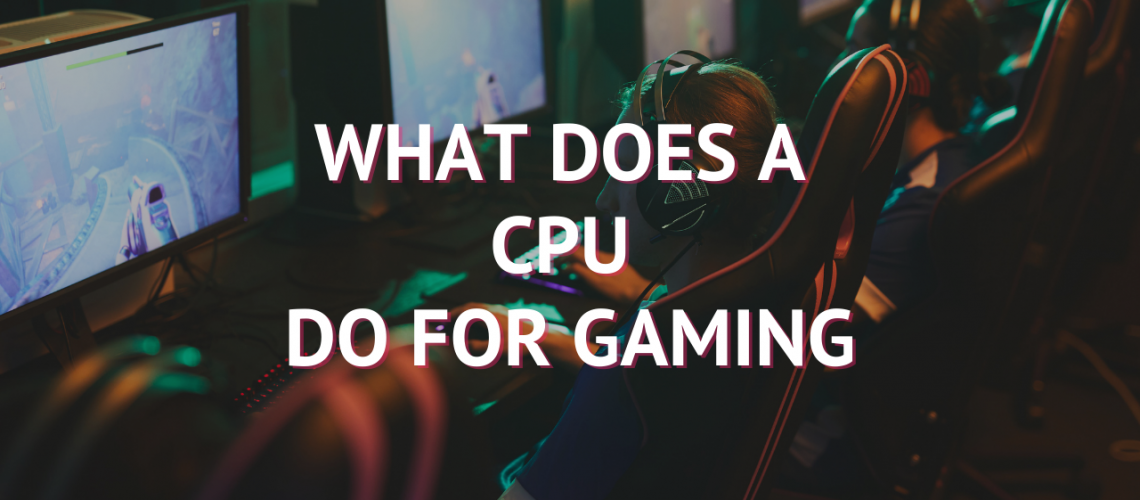Gaming requires a GPU (Graphics Processing Unit). Said it’s a chip that aids in presenting information on your screen. Graphics, animations, and videos are all controlled by the GPU in a game. As a result, acquiring the finest gaming CPU is critical.
However, this raises the question of exactly what a CPU performs in gameplay.
CPUs And Gaming
Let’s look at what a CPU accomplishes in Gaming now that we know we need more cores. Without getting too technical, let me say this: the GPU isn’t very smart. It is extremely fast at completing jobs, but it has no idea what has to be done. Instructions must be followed. The CPU, as you might think, controls the GPU’s functions.
That’s just the beginning. Everything that isn’t images or graphics is handled by the CPU. So there’s sound. But that isn’t the case. We look at how different specs of CPUs affect Gaming in our i3 vs. i5 vs. i7 comparison.
Consider the following scenario—call Of Duty: Whatever Version is what you’re playing. You’ve got a gun on you. Your character, the game world, some members of your squad, and so on are all visible. The GPU is responsible for rendering all of this. That is to say, everything you see is a result of the GPU’s activity.
When you shoot someone, though, the damage is calculated by the CPU and If any of the teammates are controlled by a computer, the computer will direct them. Yes, the GPU is in charge of executing it. The CPU, on the other hand, is in charge of deciding where that team member will go.
The CPU is also incharge of controlling and processing inputs. For example, when you move your mouse to aim and press the fire button, the CPU determines how much movement is required. Next, it recognises that you’ve activated the fire button. Finally, it assesses how much ammo you’ve lost in your arsenal.
It also calculates the opponent’s damage while simultaneously accepting new inputs. There are several statistics in a game. The CPU keeps track of all of this. Everything that isn’t visual is controlled and managed by the CPU, including collision detection, saving, respawning, AI, and the user interface.
It also gives instructions to the GPU. Finally, the GPU executes the CPU’s instructions. In a nutshell, the game and your gaming experience are controlled by the CPU.
If you believe you’d need a supercomputer to do all of this, think again. We frequently underestimate the speed and capability of a processor or CPU. Aside from the most recent Call of Duty game with just a two-core processor. That’s how good processors are when your PC is well optimised for Gaming.
As I previously stated, more games are being designed with multiple cores in mind these days. As a result, some games can utilize all 12 cores at the same time. They are, however, in extremely small quantities. So, four to six cores should be plenty for leisure gaming, while professional gamers rarely utilize processors with more than eight cores. There are, once again, exceptions. This is standard procedure.
What CPU Should I Buy For Gaming?
In the processor sector, there are now only two real companies. Intel and AMD are the two main processor manufacturers. Gaming processors from Intel are incredible. On the other hand, AMD gaming processors have been rapidly catching up in recent years.
To put it another way, if you’re looking for a gaming CPU, make sure it has at least four cores. Intel outperforms AMD in terms of gaming performance. There isn’t much difference between them, yet there is one.
However, AMD is considerably superior to Intel if you do a lot of video editing, streaming, 3D animation, and other similar tasks. AMD processors’ multi-threaded performance vastly surpasses the gaming performance reduction. As you can see, AMD provides the majority of the finest streaming CPUs.

